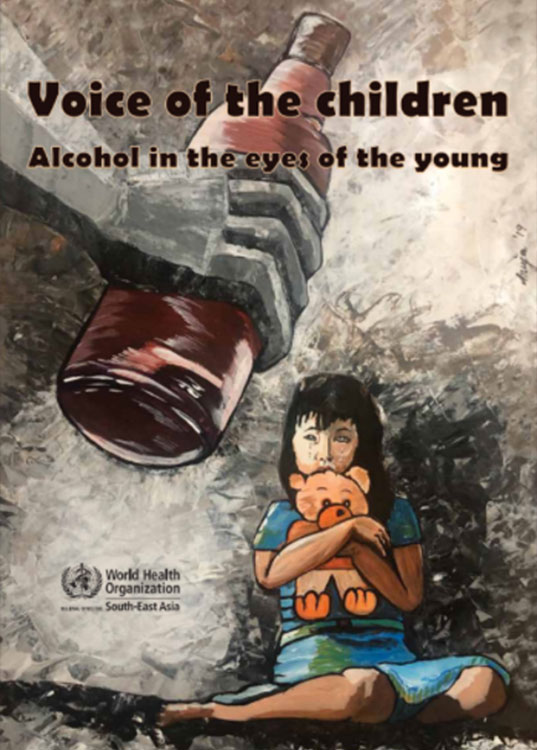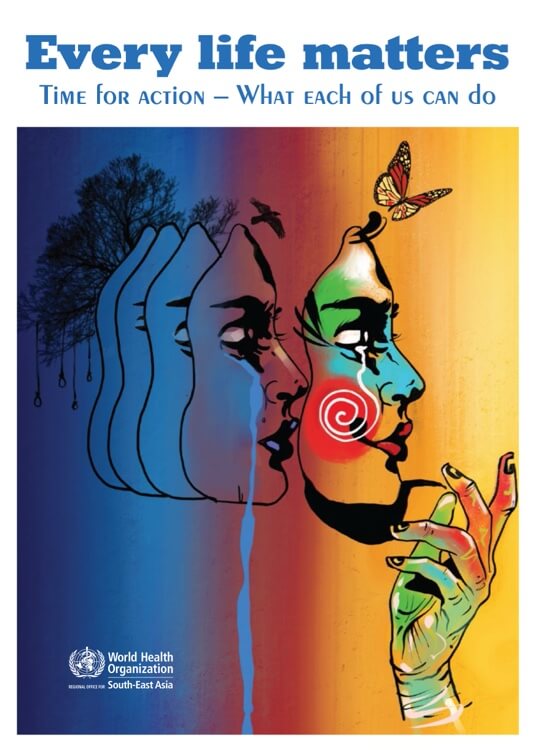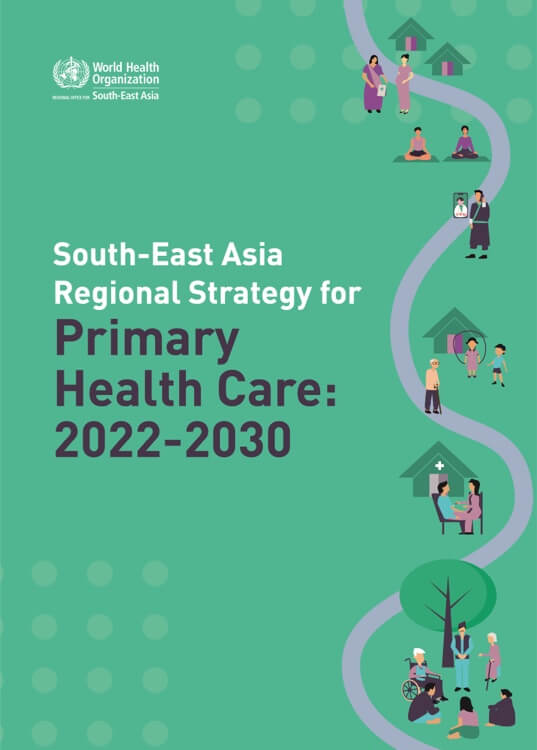VOYCE provides end-to-end production support for publications that speak to its audiences through human stories and art that tells a story. VOYCE inspires a call for action through its powerful content and unique way of delivering messages through art. VOYCE is grateful for the opportunity to have supported and produced these prestigious public health publications.
Calling all artists! Contact us to learn more on how you can contribute your art for health and social awareness.
Report on Tobacco Control in India 2022
The Ministry of Health and Family Welfare, Government of India, has released a comprehensive report on tobacco control efforts in India. This report is an update to the initial 2004 report and provides a detailed analysis of the progress, challenges, and future directions for tobacco control in the country .
The report emphasizes the critical need for continued and enhanced efforts in tobacco control to mitigate the health, environmental, and economic burdens posed by tobacco use. It serves as a vital resource for policymakers, public health professionals, and stakeholders committed to achieving a tobacco-free India.
“Despite significant progress, tobacco remains a major public health threat in India. This report underscores the need for sustained and comprehensive efforts to control tobacco use and its devastating effects on health, society, and the environment,” writes Dr. Harsh Vardhan, Minister of Health and Family Welfare.
https://ntcp.mohfw.gov.in/assets/document/surveys-reports-publications/Report%20on%20Tobacco%20Control%20in%20India%202022_22%20April%202024.pdf
Voice of the children: Alcohol in the eyes of the young
The World Health Organization Regional Office for South-East Asia has published a book on how children see alcohol, expressed beautifully through art.
“In the discourse on alcohol, the voice that is missing is that of the young. It is their voice that we need to hear. It is they who are affected most. It is their future at stake,” writes Dr Poonam Khetrapal Singh, Regional Director, WHO South-East Asia. https://apps.who.int/iris/handle/10665/326538
Client: WHO Regional Office for South-East Asia
Every life matters: Understanding suicide and its impact
The World Health Organization Regional Office for South-East Asia has published an illustrative book on preventing suicide. It has 2 parts:
- Understanding suicide and its impact
- Time for Action. What each of us can do?
“Understanding suicide and its impact” is an illustrative book – where artists from all over India and the South-East Asia Region have been encouraged to give messages through their art. The book also highlights myths and facts related to suicide and has a resources bank at the end of each section. The idea of the book is to encourage public discussion, break the shackles of silence and – pull ‘suicide’ out of the dark corners – laden with stigma and lack of knowledge to prevent it.
“Suicides are preventable, and it is time to take action. Every country today should have a national suicide prevention strategy. Early interventions, crisis response, and culturally relevant aftercare and recovery are vital to addressing this global public health problem.” writes Dr Poonam Khetrapal Singh, Regional Director, WHO South-East Asia. https://iris.who.int/handle/10665/341671
Client: WHO Regional Office for South-East Asia
Every life matters: Time for Action — What each of us can do
The World Health Organization Regional Office for South-East Asia has published an illustrative book on preventing suicide. It has 2 parts:
- Understanding suicide and its impact
- Time for Action. What each of us can do?
“Time for Action. What each of us can do?” – an illustrative book where artists from India and the Region have been encouraged to give messages for suicide prevention through their art. The book also includes positive affirmations, and illustrations that brings to attention the important role that each one of us can and must play in preventing suicide. The idea of the book is to encourage public discussion, break the shackles of silence and – pull ‘suicide’ out of the dark corners – laden with stigma and lack of knowledge to prevent it.
“Suicides are preventable, and it is time to take action. Every country today should have a national suicide prevention strategy. Early interventions, crisis response, and culturally relevant aftercare and recovery are vital to addressing this global public health problem.” writes Dr Poonam Khetrapal Singh, Regional Director, WHO South-East Asia. https://iris.who.int/handle/10665/341801
Client: WHO Regional Office for South-East Asia
South-East Asia Regional Strategy for Primary Health Care: 2022-2030
The imperative to strengthen primary health care or PHC for short has never been more compelling and urgent. Home to more than 2 billion people, the WHO South-East Asia Region faces multiple health-related challenges including the increasing burden of noncommunicable diseases, persistence of communicable diseases, the cost of health care and public health emergencies.
The recently launched WHO South-East Asia Regional strategy for PHC covers seven core values as a constant guide, 12 interdependent strategic actions and monitoring tool to assess, track and drive progress to ensure health for all in the SEA Region.
“I urge Member States to make full use of this Strategy and look forward to supporting them in their efforts to update plans, policies and operational strategies to strengthen PHC orientation, with the aim of achieving Health for All, leaving no one behind.” writes Dr Poonam Khetrapal Singh, Regional Director, WHO South-East Asia. https://apps.who.int/iris/handle/10665/350460
Client: WHO Regional Office for South-East Asia





